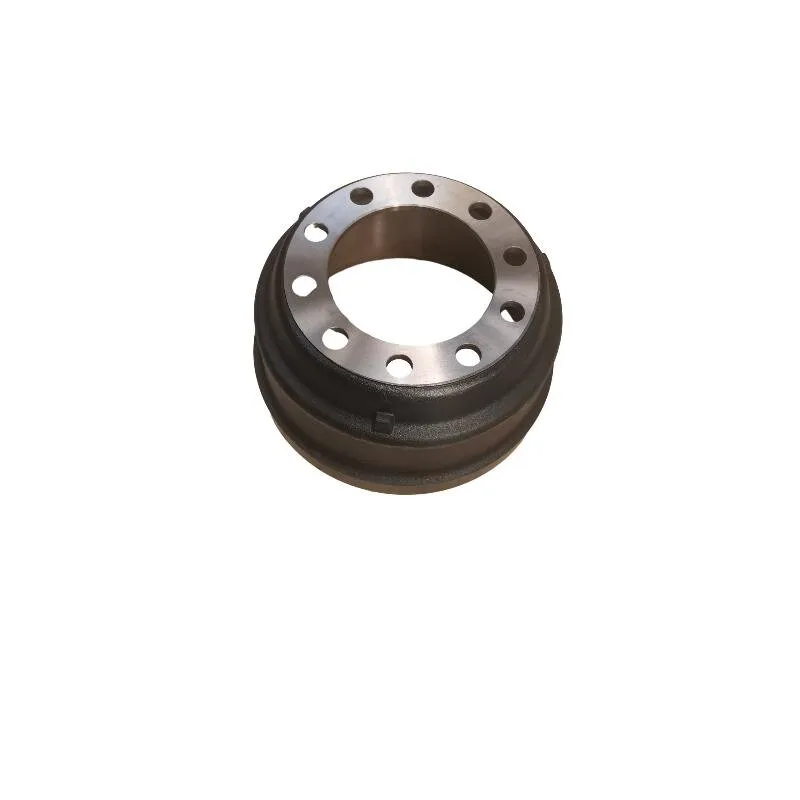דצמ . 25, 2024 12:11 Back to list
How to Fix Squeaky Brake Drums and Improve Vehicle Performance
Understanding Squeaky Brake Drums Causes and Solutions
When it comes to vehicle maintenance, few sounds are as alarming as the high-pitched squeal of brake drums. This sound not only indicates potential issues with your braking system but can also signify wear and tear that could lead to dangerous situations while driving. Understanding why brake drums squeak and what can be done can help you maintain your vehicle's safety and efficiency.
What Are Brake Drums?
Brake drums are components of a drum braking system, which utilizes friction to slow down or stop a vehicle. They consist of a cylindrical metal drum that rotates with the wheel. Inside the drum, there are brake shoes that press against the inner surface of the drum to create friction, which slows the vehicle. This system is commonly found in older vehicles and some modern vehicles, especially on rear wheels.
Causes of Squeaky Brake Drums
1. Dust and Debris One of the most common reasons for squeaky brake drums is the accumulation of dust and debris. As the vehicle operates, brake dust and dirt can build up on the shoes and drums, causing them to squeak when engaged. This issue is often exacerbated in areas with heavy traffic or poor road conditions.
2. Worn Brake Shoes Over time, brake shoes degrade and become thinner. When this happens, they may not make proper contact with the drum, leading to a squealing sound. If the brake shoes are worn down significantly, they will need to be replaced to ensure effective braking performance.
3. Moisture Humidity and occasional rain can cause moisture to accumulate within the brake drum assembly. When the drums are wet, the friction between the shoes and the drum can be altered, resulting in squeaking noises. This sound typically dissipates once the brakes dry out and the moisture is no longer present.
4. Improper Installation If brake drums or shoes have been incorrectly installed, they may not align properly. Misalignment can lead to uneven wear and unusual sounds, including squeaking. It is crucial to have a trained professional install or replace these components to prevent such issues.
5. Brake Hardware Issues Various parts within the brake system, such as springs, clips, or retainers, play vital roles in functioning effectively. If any of these components fails or becomes damaged, it can lead to a misalignment of the brake shoes and drum, resulting in squeaky brakes.
squeaky brake drums

6. Low-Quality Brake Components The quality of the brake pads and shoes greatly impacts performance. Low-quality brake materials may be more susceptible to noise and wear. Investing in high-quality components can help reduce noise and improve overall braking system performance.
Solutions to Squeaky Brake Drums
1. Regular Maintenance Regularly inspecting and maintaining your brake system is essential for preventing squeaks. This includes checking brake dust accumulation, examining brake shoes for wear, and ensuring all components are properly lubricated and functioning.
2. Cleaning If brake noise is due to dust and debris, a thorough cleaning may resolve the issue. Brake cleaning sprays can effectively remove accumulated dust and moisture, restoring quiet operation.
3. Replacement of Worn Parts If brake shoes are found to be worn down, replacing them is critical. Likewise, if damage is found in any other hardware components, repairs or replacements should be made immediately.
4. Professional Inspection If the cause of the squeak remains undetermined, it’s wise to consult a professional mechanic. They can perform a comprehensive examination of the brake system to identify any underlying issues that require attention.
5. Opt for Quality Parts Investing in high-quality brake components can significantly improve performance and reduce noise. Brands that specialize in high-performance braking systems often provide better longevity and quieter operation.
Conclusion
Squeaky brake drums should never be ignored, as they can indicate serious issues within your vehicle's braking system. By understanding the potential causes and seeking timely solutions, you can ensure a safer driving experience. Regular maintenance, proper upgrades, and immediate attention to any odd noises will keep your vehicle's braking system in top condition, preventing further complications down the road. Remember, good brakes are essential for your safety and that of others on the road.
-
Volvo Brake Drum: OEM Quality, Optimal Safety
NewsAug.27,2025
-
Durable Brake Drum MAZ for Heavy Duty Trucks | High Performance
NewsAug.26,2025
-
FUWA: Premium Quality, Reliable Performance & Innovative Solutions
NewsAug.25,2025
-
Liza Brake Drum: Superior Quality & Performance for Safe Driving
NewsAug.24,2025
-
Iveco Brake Drum | Premium OE Quality for Daily & Eurocargo
NewsAug.22,2025
-
Your Brake Drum Man: Quality & Performance Parts
NewsAug.21,2025
